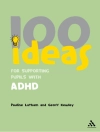This new English translation of François Jullien’s work is a compelling summation of his thinking on the comparison between Western and Chinese thought. The title, From Being to Living, summarises his essential point: that western thinking is obsessed by – and determined as well as limited by – the notion of Being, whereas traditional Chinese thought was always situated in Living.
Organized as a lexicon around some 20 concepts that juxtapose Chinese and Western thought, Jullien explores the ways the two have historically evolved, and how many aspects of Chinese thought developed in complete isolation from the West, revealing a different way of relating to the world.
Translated by Michael Richardson and Krzysztof Fijalkowski, this text explores Chinese thinking and language in order to excavate elements from them that reveal the fault lines of western thinking. This is an important book for students, scholars and practitioners alike across the Social Sciences.
Table of Content
PROPENSITY vs CAUSALITY
POTENTIAL OF SITUATION (vs INITIATIVE OF THE SUBJECT)
RECEPTIVITY (vs FREEDOM)
RELIABILITY (vs SINCERITY)
TENACITY (vs WILL)
OBLIQUi ITY (vs FRONTALITY)
INDIRECTNESS (vs METHOD)
INFLUENCE (vs PERSUASION)
COHERENCE (vs MEANING)
CONNIVENCE (vs KNOWLEDGE)
MATURATION (vs MODELISATION)
REGULATION (vs REVELATION)
SILENT TRANSFORMATION (vs RESONANT EVENT)
EVASIVE (vs ASSIGNABLE)
ALLUSIVE (vs ALLEGORICAL)
AMBIGUOUS (vs EQUIVOCAL)
BETWEEN (vs BEYOND)
SURGE (vs SETTLED)
NON-POSTPONEMENT (vs DELAYING KNOWLEDGE)
RESOURCE (vs TRUTH)
Subject/Situation: On a Branchin G-Off of Thought. Note of the Seminar 2013–2014
AFTERWORD: FROM DIVERGENCE TO THE COMMON
Bibliography
About the author
Michael Richardson is Lecturer in Sociology at the School of Oriental and African Studies (SOAS), London












